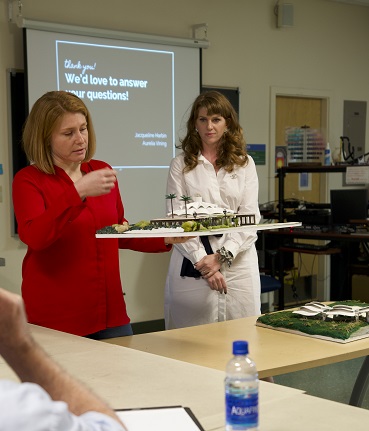Chaminade University and Hawaii Council for the Humanities recently teamed up with the New York Historical Society to bring their Women and the American Story initiative to educators in Hawaii.

The initiative connects teachers across the country with a free curriculum and resources to highlight the various ways women have helped shape our nation. The collaboration hosted a virtual workshop on November 7 to introduce Hawaii teachers to the curriculum and help them find ways to incorporate more perspectives and contributions of women in their classrooms.
The free curriculum is broken up into ten chronological units, each one exploring a different period of time in U.S. history. The November workshop focused on two of the ten time periods: Settler Colonialism and the Revolution (1692-1783) and Confidence and Crises (1920-1948).
Led by Mia Nagawiecki, the Vice President of Education at the New York Historical Society, the interactive session walked participants through various resources, including paintings, texts, documents, letters and videos and explored how each depicted women and what they said about the roles that women played during that time. For each, Nagawiecki shared tips and strategies on how to utilize the resource in the classroom to prompt a discussion and encourage critical thinking.
The training began by outlining four core questions for participants to think about during the course of the workshop, including: How did women actively participate in the Revolution? What effect did a woman’s race have on her experiences? And why are women’s stories essential to understanding the events of the American Revolution?
The first half of the workshop examined the lives of colonial women from various geographic regions, including Russia, Alaska, Spanish California, French Louisiana and England’s 13 Colonies. It also explored the lives of women from diverse ethnicities, including Black, White, and Native American, and analyzed how women helped shape the American Revolution.
After, participants joined break out rooms to discuss the four questions posed at the beginning. They also explored how they could utilize the resources in their own classrooms and how they could incorporate more women’s perspectives and contributions into their lesson plans.
The second half of the workshop focused on the Confidence and Crises module and explored the role women played during the Great Depression, the Second World War and the beginning of the Cold War, and how women gained the right to vote. This was a period of overt racism, when African American women lived under “Jim Crow” laws, and Asian, Jewish, Italian and Eastern European women faced racist immigration laws.
For this section, participants were asked to think about the dramatic shifts women experienced in their roles as women and citizens as well as the ways in which the Great Depression and World War II affected the rush toward modernity that was driving the 1920s. At the conclusion of the section, participants once again joined breakout rooms to discuss what they had just learned and how to incorporate the teachings and resources into their classroom.
“We are thrilled to have had the opportunity to collaborate with the Hawaii Council of the Humanities and bring this incredible initiative to Hawaii’s teachers,” says Dr. Cheryl Edelson, dean of the School of Humanities at Chaminade and a speaker at the workshop. “It’s so important that our students see themselves in the stories we teach, and that we introduce them to a broader range of experiences to help them value our nation’s diversity. Through this training and curriculum, the New York Historical Society is helping us do that.”









